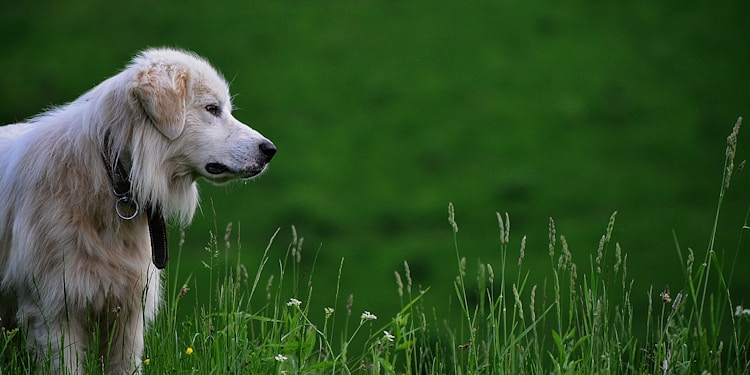A frequent observation made by many dog owners is their beloved canines eating patches of grass, rest assured this is very common, and you are not alone. It may leave you wondering if there is something wrong, are they ill? Bored? Or acting out for attention?
The most common proposition for this behavior is they do this as a way to make themselves sick. The grass is thought to coat the lining of their stomach or throat, causing them to vomit, but there is little evidence in favor of this.
Grass grazing among canines has been observed for a long time, and even seen in packs of wild dogs. While their usual diet consists of meat, they have been known to eat berries, grasses, and the vegetation found inside their prey’s stomachs.
If you are concerned that my dog is eating grass, these are some ways that you can discourage it. However, research suggests it could just be a very normal behavior and that it isn’t harmful at all.
Why Is My Dog Eating Grass?
There are many reasons your canine companion could be doing this, one of these is that they are just bored, or that they just like the way grass tastes or feels. A more accepted reason may be that your dog is trying to fulfil an unmet nutritional need, usually fiber.
Studies have been done where owners have switched their dogs’ food to a high-fiber variety, and since that transition the dog has been eating grass a lot less or stopped doing it all together.
Other possible causes could be that your dog may be dehydrated, and eating grass as a way to try to hydrate themselves, treating some sort of intestinal or stomach issue such as intestinal worms, or trying to improve their digestion.
Whatever the reason for them doing this, there are many things you can try that might help.
How To Stop It
Studies suggest that this is not a harmful behavior, and fewer than 25% of dogs that eat grass actually vomit from doing so. One thing to keep in mind however is that normal untainted grass is fine, but if a patch of grass has been treated with any sort of pesticide or herbicide, then this can be harmful if ingested.
Also, it’s best to keep them away from different plants and flowers, while grass is okay, some other plants can be harmful or toxic if eaten. If you are unsure about a plant, take a look at the American Society for the Prevention of Cruelty to Animals (ASPCA) for a list of plants, and how toxic they are to dogs, cats, and horses.
So, if you are still worried about your dog’s behavior and would prefer them to stop, then there are a few things you can do or change that may help.
Distraction
If you think they are doing it out of boredom or habit, then you could try to engage with them a little more on your next walk. Maybe bring their favorite toy, or play a game of catch with them, whatever it takes to divert their attention away from grazing. Getting your dog some more exercise may also be a good way to avoid this if boredom is the cause.
Diet Change
Perhaps you think they may not be getting the correct nutrition. If so, switching to a different food, especially high fiber foods, may be a good option. There are many brands and even websites that can help you tailor your dog’s nutritional requirements depending on their breed, size, shape, or activity level.
Keep hydration in mind, especially if you are going on long walks in hot weather or if you haven’t seen your dog drink in a while. Bring a water bottle with you, or invest in a portable dog bowl that you can fill and carry on the go.
If you are fine with the grazing, but worried about not knowing if plants or grasses are safe for your dog to consume, you could head to the pet store. Many pet supply stores offer dog-friendly herb kits that could satisfy their craving in a safe, controlled way.
Alternatively, you can spice up your dog’s diet a little and see if they like any other vegetable or fruit varieties, with many dogs liking apples, Bananas, and broccoli. Just be sure to research that what you are giving them is safe for them to consume.
Summary
If you have tried these and your dog still persists, or if you have found this behavior to start very suddenly and persist, it might be worth a trip to the vets for a check-up. Worse case scenario is that they have picked up a stomach bug or intestinal worms, which usually are easy to treat and will clear up with a prescription of medication.











